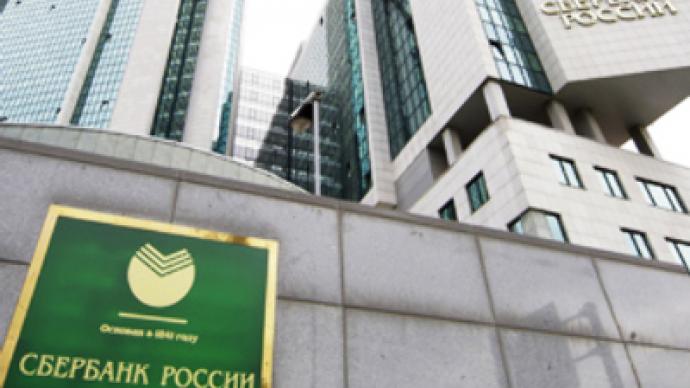Sberbank returns to hard currency mortgages

Russia’s largest bank, Sberbank, has recommenced offering mortgages in U.S. dollars and Euro more than a year after halting them due to currency volatility and the devaluing Rouble in late 2008.
Sberbank has announced that as of January 15 it will issues mortgages in U.S. dollars and Euro at 8.8% per annum. Other major lenders say they are looking at following suit, as demand for mortgages rises.
Sberbank halted international currency mortgages in December 2008 due to currency fluctuations of up to 20% which hammered mortgagees trying to meet repayments, triggering payment delays and defaults. It resumed Rouble mortgages in September 2009. Head of Sberbank’s Retail Credit Department, Natalia Karaseva, says the move stems from a stabilized economic outlook and sharply reduced risks of Rouble devaluation.
“The exchange rate has stabilized, and so far we do not see any preconditions for dollar to grow.”
Foreign currency loans have never been a large part of Sberbank’s mortgage business, estimated at between 5 and 7% prior to December 2008. With an estimated 65% of the current mortgage market Troika Dialog analyst, Olga Veselova, says it is unlikely to impact the volume of Sberbanks lending, with the focus remaining on Rouble mortgages.“I think it won’t influence the volume of Sberbank’s mortgage lending. A gradual recovery is the most likely scenario, with Rouble remaining the main currency of choice. Logically, the bank is more interested in crediting in a currency of households’ income, which is Rouble in our country. And this is to avoid credit risks created by currency risks of a borrower.”
Also seeing minimal impact on the volume of Sberbank lending, stemming from the move, is Richard Hainsworth, CEO of Rusrating. But he does believe that demand for mortgages will increase as the economy recovers, arguing that this could see prices actually fall.
“I do not think the decision to denominate loans in foreign currency will have much overall effect on mortgage lending. Mortgage lending will increase anyway because demand for mortgages will increase as the economy recovers and people want to invest in new housing.
A much more important factor in the mortgage market is the price of housing. I expect that as more people have money to spend on housing, market prices will fall! The reason is that prices advertised during the crisis were seller prices because few people wanted to buy. As buyers return to the market, they will expect to pay lower prices and will bargain more aggressively.
Prior to the crisis, housing prices – and the volume of mortgages granted by banks – were driven by speculative demand. People bought apartments because they saw the prices were constantly rising. If the cost of housing falls or remains the same, there will be no speculative demand and mortgage volumes will depend entirely on the needs of people to buy apartments to live in.”
Sberbank says the move reflects its commitment to resuming services it offered prior to the economic downturn of late 2008. Olga Naidyonova, banking analyst at Otkrytie FC says the move reflects renewed confidence in the Russian currency and Sberbanks need to place funds.
“People today are really more confident about the currency market and see fewer risks of investing in currency. That’s the first reason. And the second one is actually more specific, as Sberbank gets more than 50% of its assets from retail deposits, accumulating huge sums of money this way. So, they simply need to place these funds somewhere.”
Rusrating CEO, Richard Hainsworth, also notes that although confidence is down, and can be expected to take some time to return, those who have retained their employment through the economic downturn now represent less of a risk for potential mortgage lenders.
“The economic outlook is predictable but not bright. The crisis has shaken the confidence of businessmen and of the population. It will take some time for expectations to become as optimistic as they were pre-crisis. As far as risk is concerned, the risks of mortgage lending are now quite small. People who have jobs now were those who were not fired during the crisis and so are stable wage earners. Again this risk does not depend on the currency in which the mortgages are denominated.”











